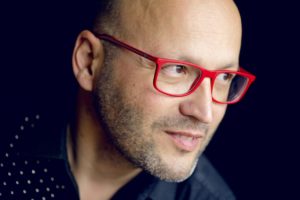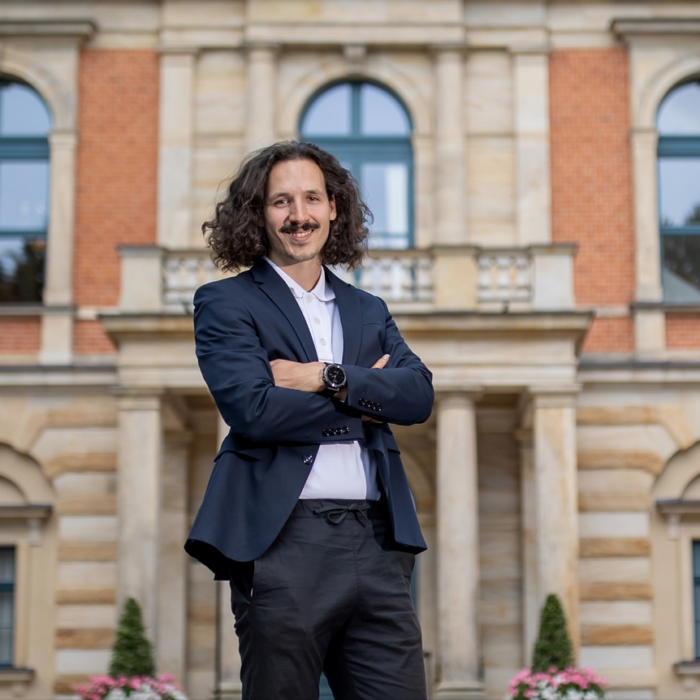
Q & A: Enrique Mazzola On Being Lyric Opera Of Chicago’s New Music Director
By Francisco Salazar(Credit:©Jean-Baptiste Millot Photograph)
For the past 10 years, Enrique Mazzola has become one of the leading Bel Canto conductors in the world and a leading specialist in French works. He is the Principal Guest Conductor at Deutsche Oper Berlin and has served as Artistic & Music Director of the Orchestre National d’Île de France.
But now he is set to take on a new position; he will become the third music director of the Lyric Opera of Chicago, succeeding Sir Andrew Davis.
OperaWire had a chance to speak with the Italian conductor on the new position and his plans for the company.
OperaWire: When did you learn about the opening for the position and that they were interested in bringing you in for it?
Enrique Mazzola: It was a process that started while I was at the Metropolitan Opera conducting “La Fille du Régiment.” The first calls were not only to say hello but see what my reactions were. The calls started to become meetings and became long chats about ideas and strategies on how the Lyric Opera works.
Coming from European theaters, it is very different the way these houses work even if it is opera. So I was briefed about how opera works in the United States before taking on the position.
OW: You will become the third music director for the Lyric Opera of Chicago. How do you feel about this honor?
EM: It’s unbelievable that I will be the third person and it is a huge honor. When you have Andrew David and Bruno Bartoletti, which are two conductors I know perfectly, I am overwhelmed with emotions and I am a bit surprised that there have only been three. I am also surprised by how long the music directors stay in the U.S. and I am very excited to be part of this family.
I am in a moment in my life where I wanted to part of an opera house. With my recent career after seven years as music director in Paris in symphonic music, I was starting to think it was time to find a home. My orchestra in Paris is doing concerts which is only four days of rehearsal versus an opera which could be two months with rehearsals and performances. It’s a different life to make opera and I think the best thing that could happen to me right now was to get a job as a music director in an opera house.
OW: You’ll be back to the Lyric opera of Chicago for “Luisa Miller.” What will it feel like to be back as Music Director Designate?
EM: I made my debut in 2016 in “Lucia di Lammermoor” and I think it will be very strange to come back and conduct an opera as Music director designate. It is unique and exciting and of course, I want to work with my colleagues as before but I know everything to be different. They will see me in a different way.
I hope it will be the same because when I conducted the orchestra and chorus, I had a very sincere and spontaneous relationship with them. I want it to be a genuine relationship so that there is always a human experience when we are making music. That has always been my style when conducting an opera and I hope I will never change.
OW: You are well-known for conducting Bel canto and French works. Coming to the Lyric Opera, what are some of the operas you want to explore and how do you hope to grow as a conductor?
EM: I have done so much bel canto in recent years that I have been called the chevalier of Bel Canto, which is true. In the past ten years, I have been linked to Bel canto because my goal was to give these works the highest dignity they deserve because, in many opera houses, Bel canto is treated as an easy opera. This upsets me. So after conducting all types of works from verismo to Puccini and contemporary opera, I decided I needed to say something about Bel canto. I set strict rules on how to create variations, how to create cadenzas and how to do something with the accompaniment. This work was very positive for me and many opera houses were open to my ideas. It was a fresh and respectful reading of Bel Canto.
Now I think the next step of my career is entering into the Verdi repertoire. It is such an obvious choice and when you open his scores you find that 80 percent is based on the rules of Bel Canto. Bel Canto does not stop with Bel Canto. He is Bel Canto and he creates new rules like the “parola cantata” which would be used in “Falstaff” and “Otello.” But this is the best way to evolve and use my ten years of experience with the Bel Canto music.
My project with the Lyric Opera is to start an early Verdi series which starts with this upcoming “Luisa Miller.” “Luisa Miller” is a great way to start and from there I would like them to open the repertoire to more Bel Canto and I would like to conduct Puccini again after eight years.
I also want to do French repertoire which is what I do at the Deutsche Oper Berlin as the company’s Principal Guest Conductor and I also want to go back to contemporary opera, which was one of my first loves. And I think it will be a good moment to stary with the German romantic repertoire. That is the big picture.
OW: Working in Berlin and Paris and now in Chicago, how do you balance so many positions?
EM: I will conduct three to four operas at the Lyric and will alternate them with the European engagements. I prefer it like this and I think that as a music director, I will have to live in Chicago. A music director is more than a conductor giving ideas but is also a citizen of the city where he conducts and has to listen to what happens in the city to be able to propose.
One thing I said to the Parisian press when I accepted my post in Paris, was that I take the metro to go to work because I listen to people speak, I look at the advertisements on the metro walls and I look at the city in all its beauty. I will do the same thing in Chicago and will attempt to explore and bring opera to different communities. I believe in order to give music to people is to bring it or invite them. and I will do both. I want the Lyric Opera to be my family.
OW: What excites you about living in Chicago and being part of that community?
EM: What I felt in Chicago is that it is an active and busy city like New York. But it is a little bit less stressful than New York and a little bit more attentive and more cordial in human relationships. What I noticed is that there is a proudness from Chicago’s community for their institutions and supportive of their arts. It’s a really great city and a bit more like the European cities I come from.


